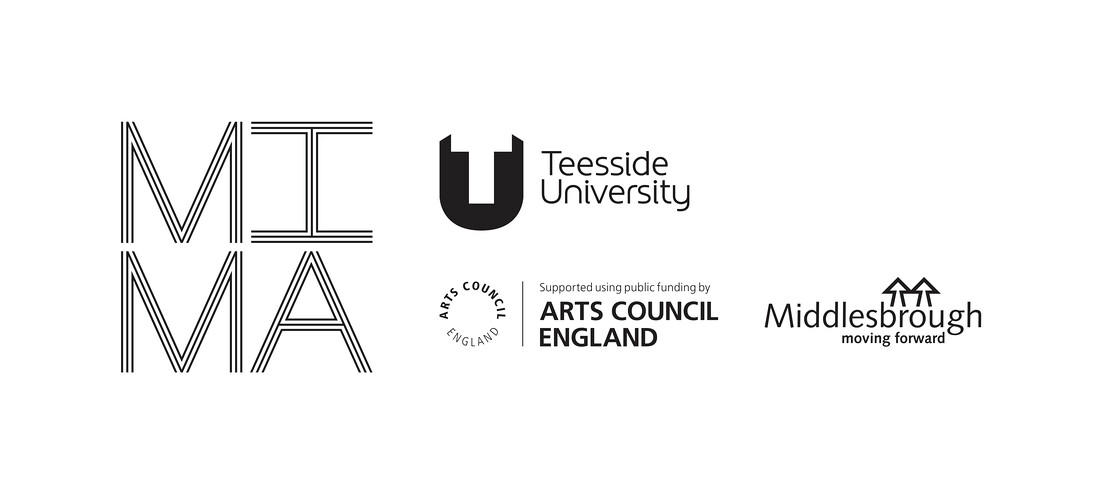Middlesbrough Collection, History Repeats Itself, Ma Qiusha, Shen Xin
March 10–June 3, 2018
Centre Square
Middlesbrough TS1 2AZ
United Kingdom
Hours: Tuesday–Saturday 10am–4:30pm,
Thursday 10am–7pm,
Sunday 12–4pm
T +44 1642 931232
s.pearson@tees.ac.uk
Middlesbrough Institute of Modern Art, part of Teesside University, is moving forward with a vision of itself as a “useful museum.” It is an institution with a social function that contributes to change through the repurposing of art as a tool. It focuses on civic engagement, treating the gallery as a public resource based on use value. Its users and constituent groups shape its meaning, and with them it fosters citizenship through education and community development.
Middlesbrough Collection
The Middlesbrough Collection, housed by Middlesbrough Institute of Modern Art, encompasses art and craft made by British and international artists from the mid-1800s to today. It includes works created with a variety of techniques and examining multiple themes, following the principles of classical genres or expanding the boundaries of a medium, exploring form or narrative.
This exhibition features an eclectic mix of works, intertwining British and international artists, and combining various media, styles, periods, and subjects. The display combines references to “cabinets of curiosity”, archives, nineteenth-century French salon-style hanging, and English country house interior design. This mode of arranging the works proposes an understanding of art in relation to society, as opposed to the “white cube” model of most museums, which emphasizes art’s autonomy.
History Repeats Itself
The German thinker Karl Marx once proposed that “history repeats itself,” suggesting that any event will likely occur and then recur, “first as tragedy, then as farce,” in an endless loop. Many artists today use history as inspiration and material, and are particularly concerned with the cyclical nature of historical processes that Marx described. The artists featured in this exhibition embrace a documentary mode to illustrate these ideas, shifting between master narratives and personal incidents, lived experience and imagination. Their works employ direct references or simulation to bear witness to events, uncovering the realities of social life. Participants include Babi Badalov, Sonia Boyce, Octavia Cook, Stephen Dixon, Núria Güell, Ian Hamilton Finlay, Lubaina Himid, Chila Kumari Burman, Glenn Ligon, Teresa Margolles, Daniela Ortiz, Keith Piper, Nancy Spero, Kara Walker, Michelle Williams Gamaker, and Horacio Zabala.
Ma Qiusha
The Chinese, Beijing-based artist Ma Qiusha (b. 1982) is concerned with the cultural gap that evolved between her own and preceding generations as a consequence of political transformations sparked by the introduction of liberal economic policies in China during the 1980s. She examines the emotional state of those caught between familial expectations—shaped by Chinese tradition and the country’s more recent communist history—and personal freedoms associated with capitalism.
A series of videos, some featuring the artist herself, explore themes related to the formation of identity, or the disruption and reparation of social relationships. Photographs address the role hyperproduction and consumerism began to play in Chinese social life with the country’s emergence as a player in the capitalist global economy. An installation shows popular representations of people and objects that refer to China during the 1990s, when the influence of Mao Zedong declined under the leadership of his successors, who were more receptive to Western cultural influences.
Shen Xin
The films by Chinese, Amsterdam-based artist Shen Xin (b. 1990) mix recorded staged performance, documentary footage, and found archival material, overlaid with narration. The artist makes parallels between the power dynamics of personal relationships and those built into the structures of society. Her recent works have focused on the interaction between Buddhism and capitalism, and China’s increasing presence on the global economic stage. The film Records of Rites looks at notions of hospitality and difference by examining the complex cultural exchanges between China and Europe.
Ongoing
Community Day
The free weekly Community Day consists of activities and events complemented by a communal lunch. It brings together people of all classes, ages, ethnicities, genders, abilities, and nationalities to share food and collectively make, learn, and discuss current urgencies.
Office of Useful Art
The Office of Useful Art is a free workplace for meetings, workshops, and displays that promote Arte Útil—“useful art,” or art as a tool—as well as the repository of the Arte Útil archive, a growing registry of historical and contemporary Arte Útil case studies.

